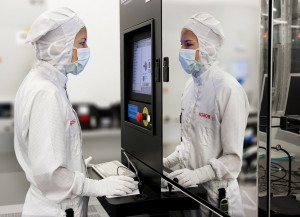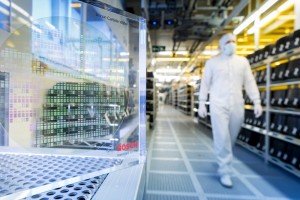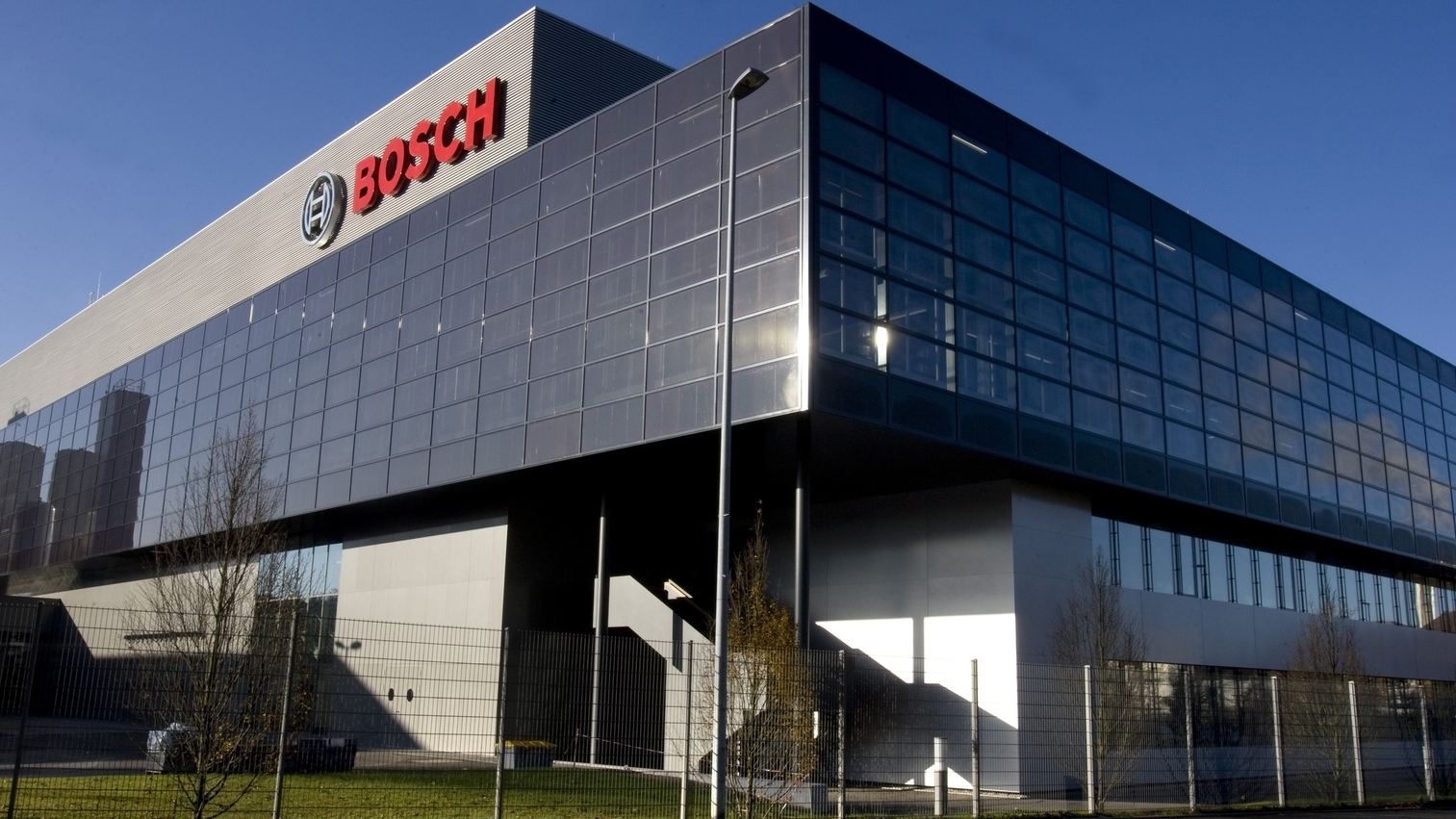Bosch is a pioneer in Industry 4.0 and relies on 5G as an important building block for digitalization and connectivity in production and logistics. The company is now starting compatibility tests and channel measurements for the construction of a 5G network at the semiconductor plant in Reutlingen. "At Bosch, we were involved in 5G research and development at an early stage and are convinced that the new mobile communications standard will provide a boost for Industry 4.0," says Dr. Michael Bolle, Bosch Board of Management and CDO/CTO.
The company is therefore actively involved in the international 5G-SMART research project with the aim of testing, demonstrating and evaluating the potential of the new communication standard in real production environments. As part of 5G-SMART, 5G applications for manufacturing are being tested at the Bosch semiconductor plant in Reutlingen, at the Ericsson site in Kista, Sweden, and at the Fraunhofer IPT's 5G-Industry Campus Europe in Aachen.
5G network setup at the Bosch semiconductor plant in Reutlingen
 Industrial manufacturing is undergoing a digital transformation: manual processes are being reduced, technical assistance systems are being introduced, sensors are transmitting a large amount of data and the degree of networking between people, machines and systems is increasing. 5G is considered a key factor. "Fast, reliable and secure data transmission is the basis for Industry 4.0. In combination with 5G, we will further increase and improve production in factories," explains Bolle. At the semiconductor plant in Reutlingen, Bosch is now starting compatibility tests together with Ericsson to determine the extent to which 5G will affect production. "Semiconductor production is extremely complex and sensitive. Wafers undergo over 1000 tests before the microscopically small elements are used in various products, for example in airbags, smartphones or e-bikes. Electromagnetic waves can be a source of interference during production. We are testing how 5G affects production," says Andreas Müller, Bosch researcher and chairman of the international 5G-ACIA (5G Alliance for Connected Industries and Automation) initiative. Channel measurements will also be carried out. These are intended to provide insights into how optimal network coverage can be ensured, for example where and how closely meshed transmitting antennas need to be placed in the plant. Based on the results, Bosch plans to set up a 5G test network in the semiconductor production facility in Reutlingen by the fall and implement the first 5G applications. Engineers are testing the extent to which machines and systems can be implemented and connected even more efficiently and better via 5G instead of Wi-Fi or cabling. Fields of application include autonomous transport systems that are controlled via a local cloud or remote access to machines and communication between industrial systems.
Industrial manufacturing is undergoing a digital transformation: manual processes are being reduced, technical assistance systems are being introduced, sensors are transmitting a large amount of data and the degree of networking between people, machines and systems is increasing. 5G is considered a key factor. "Fast, reliable and secure data transmission is the basis for Industry 4.0. In combination with 5G, we will further increase and improve production in factories," explains Bolle. At the semiconductor plant in Reutlingen, Bosch is now starting compatibility tests together with Ericsson to determine the extent to which 5G will affect production. "Semiconductor production is extremely complex and sensitive. Wafers undergo over 1000 tests before the microscopically small elements are used in various products, for example in airbags, smartphones or e-bikes. Electromagnetic waves can be a source of interference during production. We are testing how 5G affects production," says Andreas Müller, Bosch researcher and chairman of the international 5G-ACIA (5G Alliance for Connected Industries and Automation) initiative. Channel measurements will also be carried out. These are intended to provide insights into how optimal network coverage can be ensured, for example where and how closely meshed transmitting antennas need to be placed in the plant. Based on the results, Bosch plans to set up a 5G test network in the semiconductor production facility in Reutlingen by the fall and implement the first 5G applications. Engineers are testing the extent to which machines and systems can be implemented and connected even more efficiently and better via 5G instead of Wi-Fi or cabling. Fields of application include autonomous transport systems that are controlled via a local cloud or remote access to machines and communication between industrial systems.
Waferfab in Dresden: the world's first 5G-capable semiconductor factory from Bosch
The findings from the research project in Reutlingen can also be used in the planning of 5G networks in the future, for example in the new semiconductor plant in Dresden. "We are building the world's first 5G-capable Bosch semiconductor factory in Dresden. The plant will be 5G-ready from day one," says Bolle. Bosch is investing around one billion euros in the new wafer fab - the largest single investment in the company's history. Production is scheduled to start at the end of 2021.1 Microelectronics is paving the way for Industry 4.0 - on various levels. On the one hand, Industry 4.0 is unthinkable without intelligent sensor technology; on the other, semiconductor manufacturing itself is one of the pioneers of networked production. It is almost fully automated and relies on artificial intelligence to optimize production processes in real time.
EU research project determines conditions for 5G in manufacturing
 In the 5G-SMART project, a multidisciplinary team consisting of telecommunications companies, network and factory operators, plant and mechanical engineers and universities is combining 5G with Industry 4.0 solutions. In addition, the project partners are investigating electromagnetic compatibility (EMC) at the Bosch semiconductor plant in Reutlingen, carrying out channel measurements and testing how the use of 5G behaves in real production environments. New 5G business models are also to be identified. The project, which is funded by the European Union, is scheduled to run for a total of two and a half years and will end in November 2021.
In the 5G-SMART project, a multidisciplinary team consisting of telecommunications companies, network and factory operators, plant and mechanical engineers and universities is combining 5G with Industry 4.0 solutions. In addition, the project partners are investigating electromagnetic compatibility (EMC) at the Bosch semiconductor plant in Reutlingen, carrying out channel measurements and testing how the use of 5G behaves in real production environments. New 5G business models are also to be identified. The project, which is funded by the European Union, is scheduled to run for a total of two and a half years and will end in November 2021.
1 The industrialization of the innovative semiconductors at the Dresden site is funded by the Federal Ministry for Economic Affairs and Energy (BMWi) as part of "IPCEI Microelectronics".


